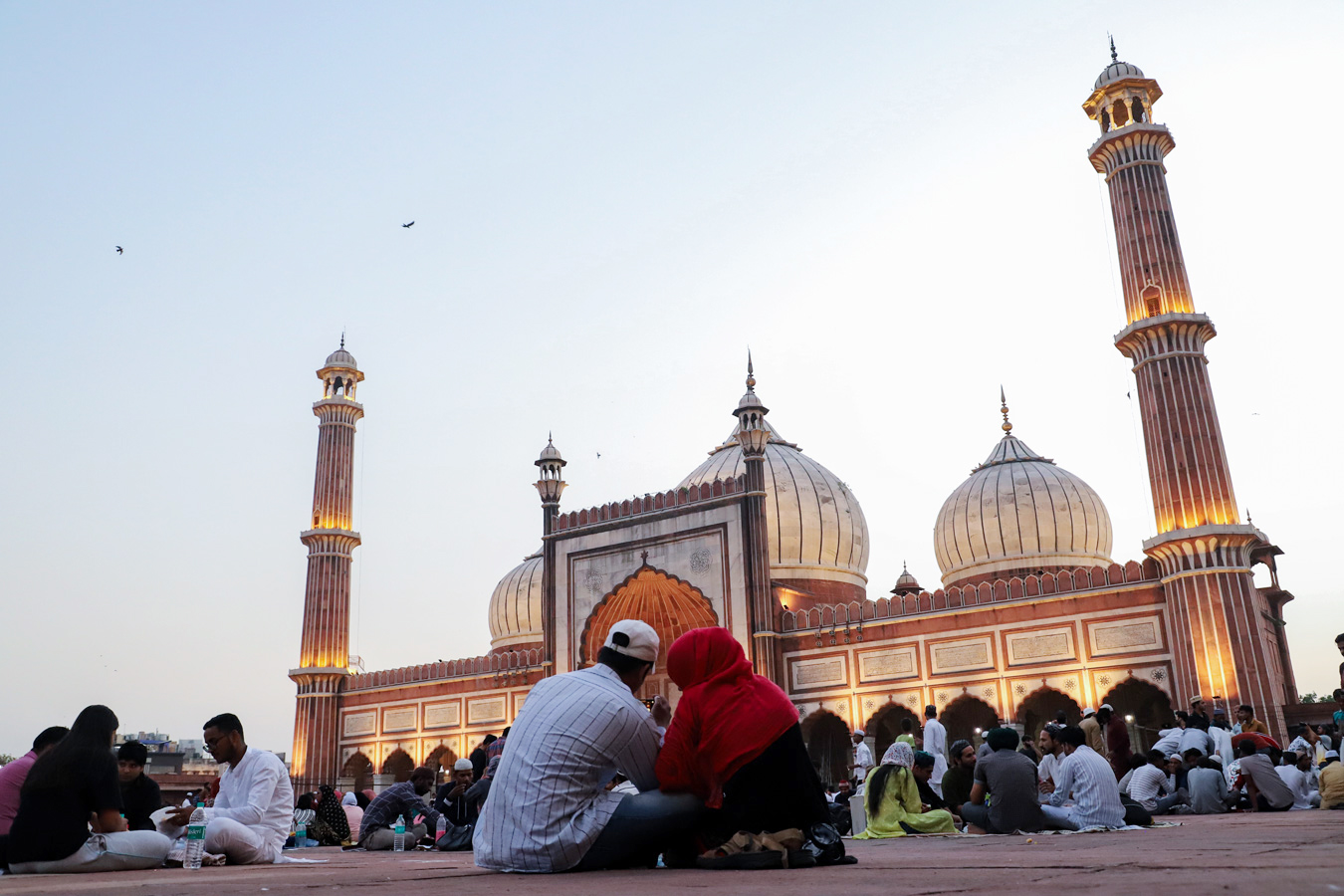Muslim women divided over Jama Masjid ban

Though short-lived, ban on entry of single women in Jama Masjid raises important questions (Photo: Aman Kanojiya/MIG Photos)
Ultimately, the ban did not last even a day and it was rapidly withdrawn in face of escalating controversy across the country. On November 24, a notice was put up at the gates of the Jama Masjid, the largest mosque in India, saying that entrance of unmarried girls or group of girls was not permitted.
Guards at the gates of the mosque, located in the walled city of Old Delhi, were seen asking the unaccompanied women and couples to go back or return with their families, while only married couples and groups of women were allowed to visit the mosque after declaring their marital status.
However, within hours, the ban was scrapped after the outrage across the country and upon the intervention of Delhi’s Lieutenant Governor Vinai Kumar Saxena. Despite its short life, the ban was not taken to kindly by many of the target group – young women and girls.
“As a Muslim woman I deeply feel about women’s spaces in mosques,” Fatima Rehbar, a student of Jamia Millia Islamia University tells Media India Group. “There is no basis in Islam to stop women from entering mosques. If the authorities argue that inappropriate activities are taking place in the Masjid, why put the onus solely on women by banning them from entering? Why not ban the men? This is misogyny,” says Rehbar.
By the end of the day, the ban was scrapped with setting a guideline for women. In a statement, Shahi Imam Syed Ahmed Bukhari, who is the spiritual leader of the mosque said, “Anyone who wants to offer prayers or visit the mosque can come. We were concerned about the people who have started treating the mosque as a meeting point and indulging in activities that defy the sanctity of the place of worship. If an unaccompanied woman wants to visit the mosque, she should feel free to do so. However, we are expecting the visitors to maintain decorum. There have been instances when women have used the premises of the mosque as a meeting spot with their boyfriends or have proposed, or made videos. The mosque is not a designated meeting point for such individuals. Unaccompanied women could inform the guards about the purpose of the visit and enter the mosque premises only,” Bukhari said.
Rehbar counters the explanation and says that the Shahi Imam’s justification for banning women was not rational. Putting a condition of women being allowed either with a husband or family says a lot about the way he thinks of women, she says. “This is the vilification of women. And it will have a real psychological impact on how Muslim women, especially young Muslim women, will perceive themselves regarding their faith. But, I believe this has more to do with the larger problem of not providing equal spaces to women in most of the mosques around the Muslim world,’’ Rehbar adds.
Sabah Hussain, a doctoral student at the Jamia Millia Islamia University has a similar opinion as Rehbar. “When the news of the ban was making rounds on the various social platforms, I felt very bad and it was a violation of women’s rights that are given to us by our religion, any such move shouldn’t be appreciated and can’t be tolerated,” Hussain tells Media India Group.
But not all women are unanimous on this issue. Insha Aishai, who works in a private company in Delhi, conters Rehbar. “I believe it was an important gesture from the Shahi Imam as the mosque is a place of worship, not a spot for hanging out,” Aishai tells Media India Group.
“When there have been instances where inappropriate activities have happened inside the premises of the mosque, it becomes imperative for the authorities to put a stop to them,” she adds.
“I think it shouldn’t have been withdrawn and there must be boundaries and proper differences between religion and what people usually do,” she insists.
Simeen Anjum, a resident of Delhi, also thinks that there should be a curb on use of the Jama Masjid premises for purposes other than spiritual. “Whenever I have visited Jama Masjid, I have seen people coming and making dance videos and couples doing unsuitable activities in and around the premises which makes one uneasy and if one is with family then it is an embarrassing moment and can’t be ignored sometime. The ban was very relevant,’’ Anjum tells Media India Group.
Safdar Rather, a resident of Delhi feels that ban was a violation of women’s rights as it targeted only one gender and if a ban had to be imposed, it ought to have been the same for both males and females. The mosque officials should guide the people who visit the mosque and also acknowledge the instances of eve-teasing and harassments faced by the women in the premises of worship places and take necessary action but without alienating females, Rather adds.
“Both can be wrong, what is the point of passing the notices for females only when there are loopholes from both sides,” Rather tells tells Media India Group.









